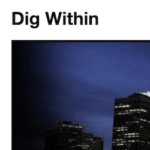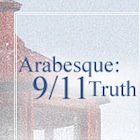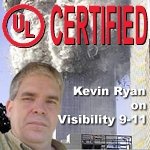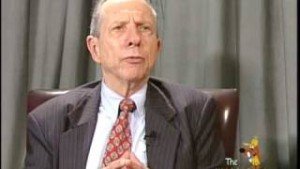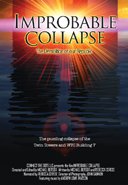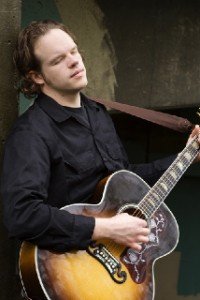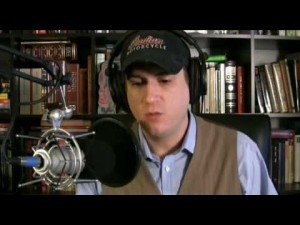Protesters: West Terre Haute police abused power
Arrest raises questions of when it’s OK for officers to ask for ID; men considering lawsuit
By Deb McKee
The Tribune-Star
WEST TERRE HAUTE — Two men walking across the nation to protest the Iraq war say police officers in West Terre Haute violated their constitutional rights last week when one of the men was arrested for failing to produce identification.
Police say the request for identification was legitimate, and the arrest lawful.
For nearly four months, Raymond Schwab, 32, of Loveland, Colo., and Elliott Nesch, 22, of Fort Collins, Colo. — Brother Raymond and Brother Elliott, to their followers — have been walking from Denver on their way to Washington, D.C., sharing their religious and pacifist beliefs.
They belong to Beit Shalom Ministries, an outreach of the Protestant Free Church Movement, according to their Web site, www.beitshalomministries.org, which is sponsoring the walk.
On the evening of July 8, the two had just crossed the border from Illinois into Indiana when Nesch was stopped by a West Terre Haute police officer.
That in itself is not unusual for the pair.
Nesch said during an interview Friday afternoon that since they began walking, they have been stopped daily by members of various police agencies.
But this week was the first time either of the two ended up in a jail cell.
Carrying signs and often wearing bright orange, prison-type jumpsuits, Nesch and Schwab rarely fail to be noticed as they walk — separately, about five miles apart — along the nation’s roads. The jumpsuits are imprinted with large letters saying, “God is Love,” and “Real Christians Don’t Choose War.” Sometimes when they stop in a city to preach, they wear black trash bags over their heads to simulate photographs released last year depicting military harassment of prisoners at Abu Ghraib prison in Iraq, Nesch said. One of the signs they carry says, “Real Christians Don’t Torture.”
As part of their routine, they drive to a predetermined destination where Nesch drops Schwab off and drives about five miles farther down the road to park. Then Nesch starts walking. When Schwab reaches the vehicle, he drives ahead to find Nesch and they repeat the process, covering between 10 and 30 miles a day.
In addition, they travel with an RV that they park at local churches. That’s where they sleep and relax between walks. Schwab’s wife and four young children are along for the trip, staying with the RV during the day while Schwab and Nesch walk and preach.
They aren’t surprised to be stopped, Schwab said, and they don’t have a problem with it. They say they know what they are doing is provocative and could be misinterpreted, but they say they speak respectfully with officers and they explain what they are up to. Nesch says he welcomes the opportunity to talk to officers.
What has become more troubling as part of the police stops, they say, is that they are almost immediately asked to show identification.
“We researched it,” Nesch said, “And the Supreme Court ruled that you don’t have to present your ID if you’re not under suspicion of having committed a crime, committing a crime or going to commit a crime.
“I think it’s pretty obvious what we’re doing, so we refused to give it unless there’s some legitimate complaint, like sometimes when we’ll be preaching really loud with megaphone and there might be a complaint, we’ll gladly give our ID, but it was obvious [in West Terre Haute] we were just walking.”
The Law
Indiana law says that when a law enforcement officer stops a person for an infraction or an ordinance violation, then the person can be required to provide their name, address and date of birth or driver’s license if they have one. Failure to do so is a class-C misdemeanor, according to Indiana Code 34-28-5-3.5.Someone committing a class-C misdemeanor is subject to arrest, according to attorney William E. Marsh of the Federal Community Defender’s Office in Indianapolis.
Schwab and Nesch are alleging that the West Terre Haute police destroyed the evidence by erasing the tape, but Chief Mark Arnold says that’s nonsense.
“The video camera never left [Nesch’s] sight,” Arnold said during a phone interview Friday. “When they booked him in, they tagged it in with him … In the process of turning it off, [the officer] could have hit the button. I don’t know what happened, but there was no malice, no bad intent,” he said.
Reasonable suspicion?The two men say they are not guilty of any violation, and allege that the police abused their power.Schwab said he compares it to “Communist Russia, where you’re obligated to identify yourself wherever you go, which is contrary to the [United States] Constitution.”He maintains that he has the freedom “to walk unobstructed without having to tell anyone what I’m doing or why I’m doing it as long as I’m within the boundaries of the law and not infringing on anybody else’s rights.
“We want to show people that while we’re killing people in Iraq for the claim of freedom, we’re losing those liberties here in America. And it’s unacceptable,” Schwab added.
Schwab said, “If someone had said, these guys threw rocks at our car, that’s one thing, but just because they think we look suspicious — people cannot just randomly ID people because they have a hunch.”
Marsh said, “In terms of practical advice, if someone asked me as a lawyer what to do in this case, I’d say to minimize the conflict for yourself, show your ID and move on … But if a person chooses not to do so, it’s not a violation of Indiana law.”
He added that a person should “absolutely not” be subject to harassment or arrest for failing to offer ID under those circumstances.
Nesch said if the law required him to show his ID, he would gladly produce it.
“We’re not lawbreakers, we’re peaceful people,” he said.
Schwab added that the two were aware of the recent shooting death of an Indiana State trooper during a routine traffic check, and understood that police could be on edge. He said he and Nesch treat officers with respect.
“We don’t want anyone to get hurt,” Schwab said. “When I was talking to the officers after they arrested Elliott, I said, I’m going to reach into my backpack to grab a bottle of water … we try to be very careful and respectful.”
Identification for Infraction
Chief Arnold says Nesch did commit an infraction, by parking his vehicle illegally on the highway, and that justified the request for identification.“Abandoning a vehicle on a highway is a class-C infraction,” Arnold said. “As long as a crime has been committed, someone does have to give ID.
Civil Liberties
In the meantime, Nesch and Schwab plan to head to their next stop: Indianapolis. Once there, the two say they will continue to walk and preach, and they intend to meet with an attorney to explore the possibility of filing a lawsuit against the West Terre Haute Police for false arrest and infringement of civil liberties.
“We don’t want to get anyone in trouble,” Schwab said, “we just want [the police] re-educated … I think the law is clear.”
He added, “We have met many officers who do their jobs well, who are very respectful, and don’t come up asking for ID, they just say hey, are you guys OK, we just got a call, where you going? We give them that information because it’s part of our ministry.”
However, Schwab said it sometimes seems as if they are “guilty until proven innocent … the scary thing is, it’s not just the police. It’s citizens, who say, why not just give them your papers, take the path of least resistance?”
The men, who have supporters from all over the world, are able to continue their ministry from donations they receive through their Web site, Schwab said.
After Nesch’s arrest, the West Terre Haute Police Department received “quite a bit of phone calls” about the incident, according to a dispatcher. An e-mail circulated widely encouraged supporters to call the agency, as well as the Vigo County Sheriff’s Department, Indiana Gov. Mitch Daniels and the Legislature, among others.
Nesch, who wears a full beard and speaks softly, said he didn’t mind his time in jail.
“I wasn’t angry,” he said. “I was blessed that I could talk to more people about the Lord and the ministry that God has called us to.
“I thought I was there for a reason.”
Deb McKee can be reached at (812) 231-4254 or deb.mckee@tribstar.com.
Original article here.









